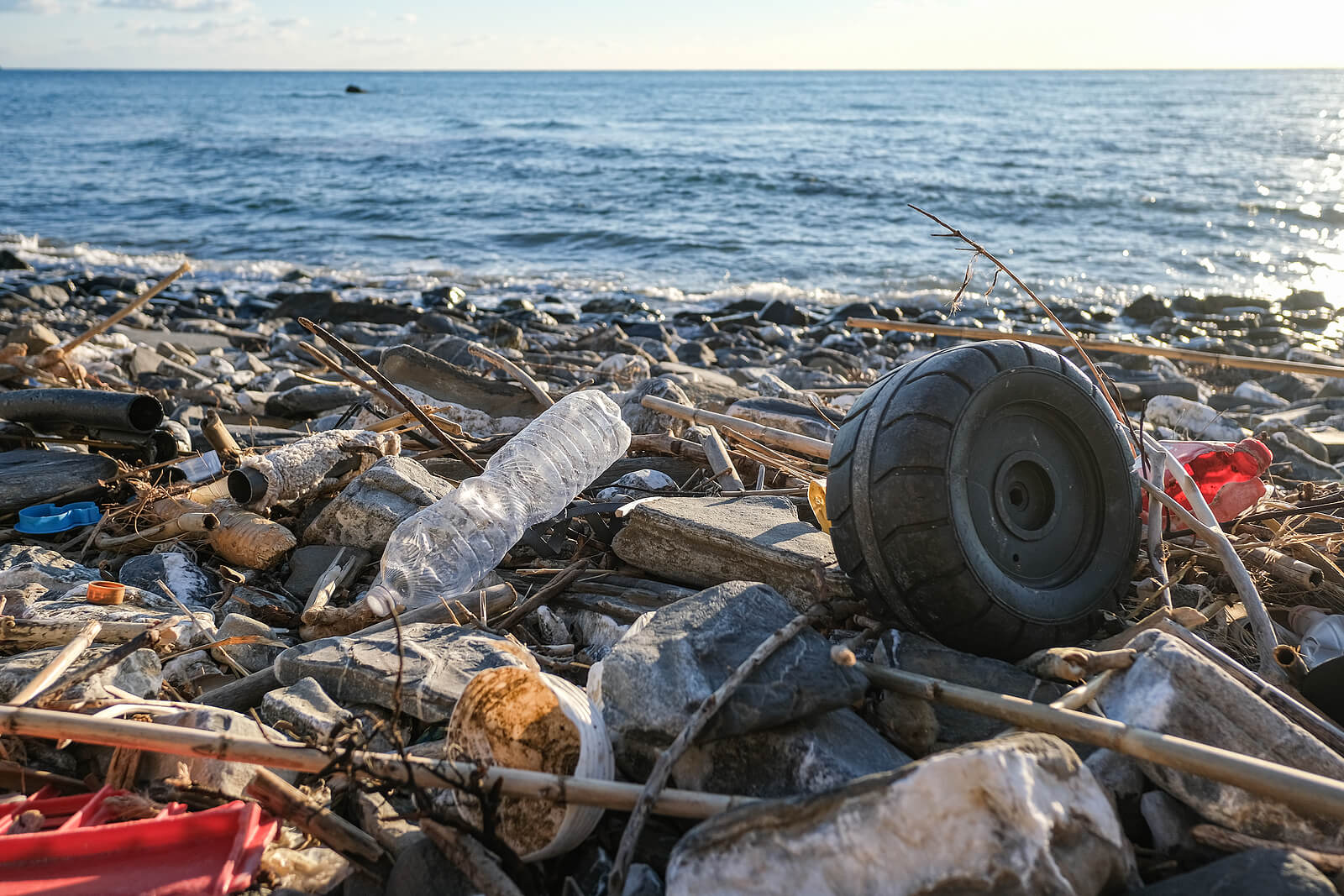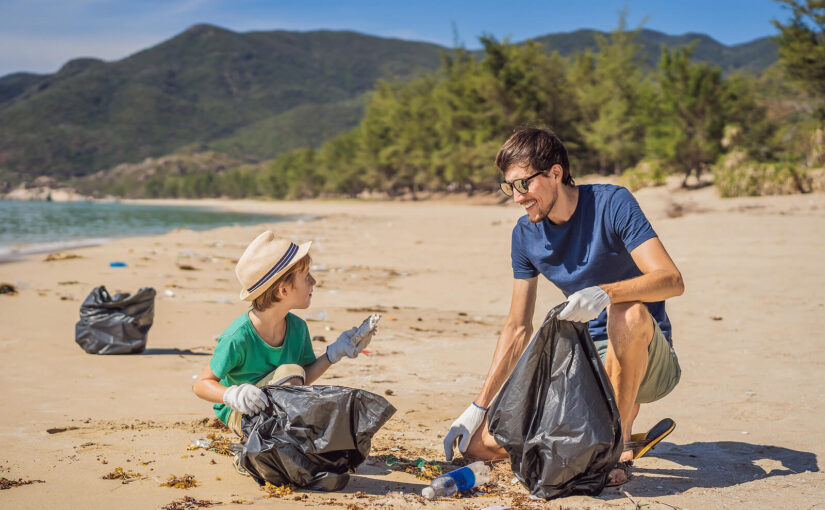Litter from land sources is frequently washed or blown into the ocean, resulting in a cocktail of chemicals and garbage that harms the environment and is detrimental to life under the surface. The Great British Beach Clean aims to reduce marine pollution and raise awareness of the damaging effects caused by ocean litter.
Learn more about the Great British Beach Clean Up, the effects of beach pollution, and how to participate this year.
What is the Great British Beach Clean-Up?
The Great British Beach Clean is a week-long annual event that encourages people all over the nation to clean hundreds of beaches, which drives conservation efforts and contributes to the International Coastal Clean-up (ICC), a global organisation that strives to clear the world’s beaches from non-biodegradable litter.
This year’s clean-up will take place from Friday September 17th to Sunday September 26th, 2021, and is expected to be a huge success The COVID-19 pandemic may have impacted the beach clean in 2020, but it still took place, albeit on a smaller scale. Despite the unusual circumstances, the beach clean had over 2,000 volunteers spread across 459 events.
This resulted in approximately 425 items of litter collected per 100m of the UK’s shoreline. Much of the collected litter was PPE, with face masks and gloves accounting for approximately 30% of the litter discovered.
The litter found on the beach is a harbinger of something far scarier: the amount of waste that is making its way into our oceans. If this is the amount of litter found on a beach, imagine how much more is floating beyond the horizon.
What are the effects of beach pollution?
Waste on the beach that flows into the ocean has a devastating environmental impact. Not only does it have an impact on the lives of marine creatures and other animals that drink water, but it can also be toxic to humans.
Below are some of the consequences of beach and ocean pollution.
Harmful to animals
When waste enters the sea, it endangers many marine animals such as seals, whales, fish, and dolphins. These animals are dying and becoming extremely ill as a result of the increased amount of waste entering the water.
Animals consume both large and small pieces of plastic, both of which are extremely harmful in different ways. Microplastics, which are tiny pieces of plastic that have degraded from larger pieces, are easy for animals to ingest and can increase the risk of disease. Waste can also entangle around fins, feet, or wings, causing a painful experience and exposing animals to unnecessary suffering.
Toxic to humans
When animals begin to consume polluted water, the toxins enter the food chain, which poses a risk to human health. The toxic chemicals found in plastic can have an impact on the immune system and, in some cases, have been linked to developmental issues.

Plastic can take hundreds of years to decompose
It can take many years for most plastics to fully degrade, if at all. Traditional plastics, such as polyethene terephthalate (PET), for example, cannot biodegrade at all.
Plastic must be consumed by bacteria before it can begin to degrade. However, PET plastic is made with chemicals that are unaffected by bacteria.
Many plastics can eventually degrade, but decomposition in landfills and the ocean can take up to 450 years. The greater the presence of plastic in the ocean, the greater the risk of harm to animals, humans, and the environment.
How can I get involved with the beach clean-up this year?
It is extremely simple to get involved in a beach clean-up. All you need to do is look for a beach clean-up near you or organise your own.
If you need to organise your own event, the Great British Beach Clean provides step-by-step guides and resources.
What you can do if there is no beach near you
Even if you live in an area of the UK without a beach and are unable to travel, there are numerous ways for you to participate.
Here are some ideas for how you can help with the Great British Beach Clean.
Raise awareness on social media
Social media is one of the most effective ways to raise awareness, and sharing information about plastic pollution, the environment, or the beach clean-up can be a great way to inspire others.
You could write a post about how to recycle effectively, the effects of marine pollution, or simply ask people to be environmentally conscious. Every little thing counts.
Check what you can and can’t recycle
One of the main ways waste enters water is through littering and incorrect recycling. By checking what you can and can’t recycle, you are making a conscious effort to avoid any incorrect waste disposal and helping the environment.
Try to reduce your own waste
Upcycling is a great way to reuse items while also adding some flair to your home. Try to reduce the amount of waste you generate whenever possible. There are ways to upcycle waste, such as turning plastic bottles into small plant pots.
Whenever possible, reduce waste at the source. Do one weekly shopping trip where you buy fruit and vegetables not wrapped in plastic where possible and bring your own reusable bags, as well as limit your spending on things like new clothes.
Have a big clear out
If you have piles of waste accumulating in your home, hiring a skip is an easy way to get rid of it all. Making three piles labelled “keep,” “get rid of,” and “donate” is an effective method to get organised and speed up the process.
Hiring a skip ensures your waste is properly disposed of, reducing the amount of waste that ends up on beaches.
A skip also helps reduce your carbon footprint by eliminating the need for multiple trips to the landfill, instead having it conveniently collected from your home. Learn more about hiring a skip here.
